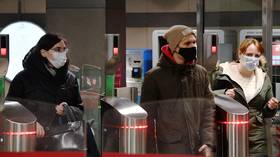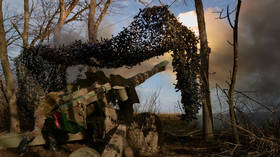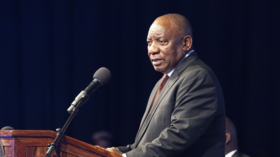There’s a bug going around! Cyber attacks and malware have spread like virus during Covid-19 pandemic, says Russian expert

A new and dangerous wave of infections is sweeping the globe. But instead of coughs and sneezes, it’s spread via clicks and emails. Now, with more people working from home, hackers are having a field day targeting our hard drives.
That’s according to Nikolay Murashov, the Deputy Director of Russia’s National Co-ordination Center for Computer Incidents. Addressing an IT conference on Thursday, the digital watchdog said that “the epidemic has contributed to an increase in tensions in the information space.” Online bandits, he said, are taking advantage of “insufficiently protected remote access channels and exploiting software vulnerabilities used in remote-working conditions.”
He added that throughout 2020, over the course of the Covid-19 pandemic, the number of attacks on government organizations, universities and colleges had increased. In general, Murashov said, cyber criminals aim to disrupt the ability of organizations to function remotely, as many in Russia have been required to, under laws designed to prevent the spread of the virus.
Also on rt.com Beware! Russia needs your vaccine! UK, US & Canada say hackers targeting Covid-19 research are ‘almost certainly’ Kremlin-linkedOthers, he said, were designed to “gain access to confidential information, personal data and credit card numbers.” Worryingly, the center was forced to work to defend against a number of attacks on critical infrastructure facilities, both in Russia and abroad.
As developed countries quickly moved entire sectors online, from industry to doctors’ consultations, entirely new routes into sensitive systems opened up. Many workers, who did not have access to company laptops, were asked to log in from their own devices, opening up possible back doors for those who would want to sneak in and steal from businesses’ servers.
In July last year, the UK’s National Cyber Security Centre and its Western allies accused Russia of “almost certainly” being behind efforts to crack the digital padlocks on research into a Covid-19 vaccine. Reportedly, a group called APT29 was engaged in efforts to steal data from projects in Oxford and at Imperial College London.
However, Kremlin spokesman Dmitry Peskov told RIA Novosti at the time that “we can say one thing – Russia has nothing to do with these attempts.” Just a few weeks after the row, Moscow announced that it had registered the world’s first formula to protect against Covid-19, Sputnik V, suggesting that its domestic efforts had already been at an advanced stage.
If you like this story, share it with a friend!















